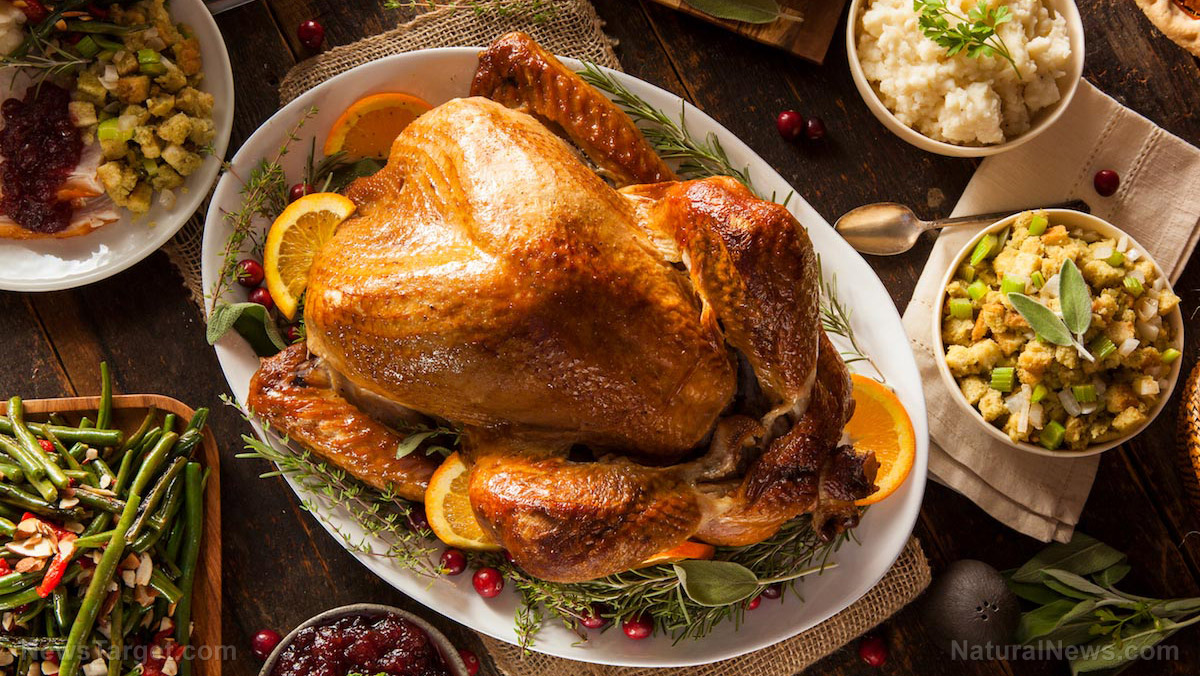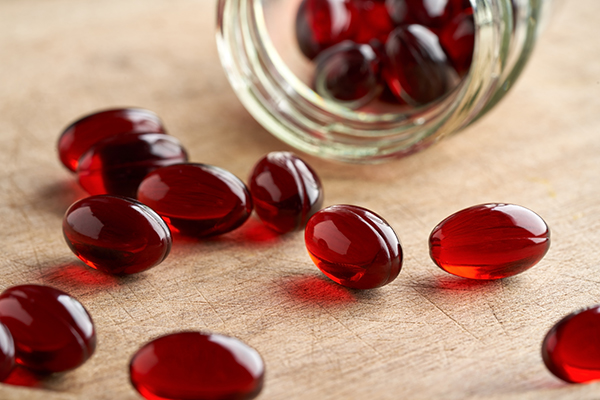
- Native to North America, turkey was first domesticated by Indigenous peoples before it was introduced to Europe in the 16th century. It later became a staple for holiday feasts like Thanksgiving and Christmas.
- Turkey is high in protein (~25g per 3 oz), B vitamins (B3, B6), selenium, zinc and phosphorus. It is also low in saturated fat (when skinless), making it a heart-healthy choice.
- Whole, unprocessed turkey is highly nutritious, but processed products (deli meats) may contain harmful additives. Opt for organic or free-range to avoid antibiotics and contaminants.
- Conventionally raised turkeys may have traces of pesticides, heavy metals and antibiotics. Choosing organic turkey helps minimize your risk of exposure to these harmful chemicals.
- Enjoy turkey roasted, grilled or ground in burgers, soups, kebabs and global favorites like Mexican mole or Turkish döner.
Nutritional value of turkey
Turkey is a nutrient-dense food, offering high-quality protein and essential vitamins and minerals with relatively low fat content (especially when skinless), which makes it a heart-healthy alternative to red meat. Here's a list of the essential nutrients you can get from a three-ounce (85 grams, g) serving of cooked, skinless turkey breast:- Protein, about 25 g, a nutrient that supports muscle growth and repair and promotes satiety
- B vitamins, particularly B3, which is needed for energy metabolism, and B6, which is essential for brain health
- Selenium, a powerful antioxidant that supports thyroid function
- Zinc, which helps boost immune function and supports wound healing
- Phosphorus, an essential nutrient for bone health
- Iron, which helps prevent anemia
How to eat turkey
Turkey is widely regarded as a highly nutritious food, particularly when compared to processed meats like sausages or bacon. However, concerns may arise depending on how it is prepared and sourced. Processed turkey products, such as deli meats or sausages, often contain nitrates, excess sodium and preservatives, all of which have been linked to health risks. Additionally, conventionally raised turkeys may be given antibiotics or growth hormones — practices banned in the EU but still permitted in some countries. Consuming turkey with the skin on can also increase saturated fat intake. To maximize health benefits, opt for organic, free-range or pasture-raised turkey, as these options tend to have higher levels of omega-3 fatty acids and fewer contaminants. Conventionally raised turkeys are often exposed to chemicals like antibiotics -- the overuse of which can contribute to antibiotic resistance -- and arsenic, which was once added to poultry feed but is now banned in many countries. Some studies have also detected trace amounts of heavy metals like cadmium or lead in conventionally raised poultry. For a cleaner and safer option, choose organically raised turkey. This poultry is not exposed to synthetic pesticides and antibiotics and is not given genetically modified (GMO) feed. Look for certifications such as USDA Organic or Non-GMO Project Verified to ensure higher standards in turkey production.Culinary uses and recipes
Turkey's mild flavor and adaptability make it a favorite in many cuisines. Here are some classic and creative ways to incorporate turkey into your diet:- Roasted turkey - This holiday centerpiece is best seasoned with herbs like rosemary, thyme and garlic.
- Ground turkey - A lean substitute for beef in burgers (mixed with oats, egg and spices), meatballs (baked or simmered in tomato sauce) and chili (packed with beans and veggies).
- Turkey breast - Grilled or baked with lemon and herbs for a high-protein, low-fat meal.
- Turkey soup/stock - Simmer turkey bones for a collagen-rich broth that offers immune support.
- Deli-style turkey - Opt for nitrate-free slices in wraps or salads.
- Turkey mole - Slow-cooked turkey in rich chili-chocolate sauce.
- Turkish döner kebab - Spiced, sliced turkey in flat breads.
- British turkey pie - A savory pastry served with mushrooms and gravy.
More related stories:
Thanksgiving might be very different this year thanks to turkey shortages, higher food prices.
Study: More Americans ditched turkey for FAST FOOD on Thanksgiving.
Unique holiday dishes: The surprising history behind the Christmas ham tradition. Sources include: Brighteon.AI NaturalNews.com Brighteon.comSuper sprouts: Creative ways to incorporate sprouts into your meals
By HRS Editors // Share
Israel bombs Syrian military sites in warning to Turkey amid rising tensions
By Cassie B. // Share
Hawthorn: A timeless medicinal marvel
By Ava Grace // Share
Walnuts can help you beat stress
By News Editors // Share
Astaxanthin: Nature’s ultimate antioxidant powerhouse
By HRS Editors // Share
Super sprouts: Creative ways to incorporate sprouts into your meals
By hrseditor // Share
Prepper must-haves: 12 Essential items to keep in your car for wildfire survival
By zoeysky // Share
Pumpkin juice RECALLED over potential botulism risk
By avagrace // Share
Israel bombs Syrian military sites in warning to Turkey amid rising tensions
By isabelle // Share









